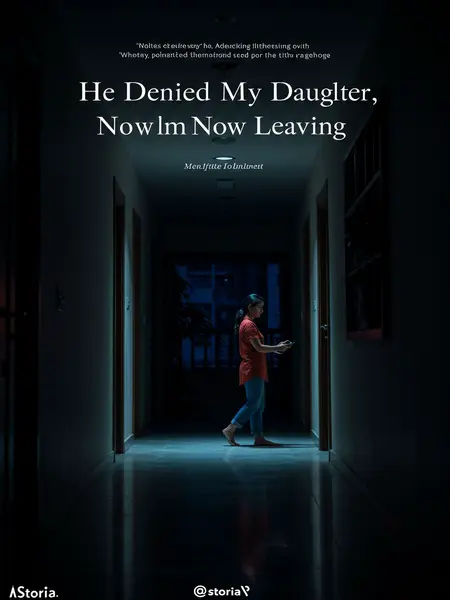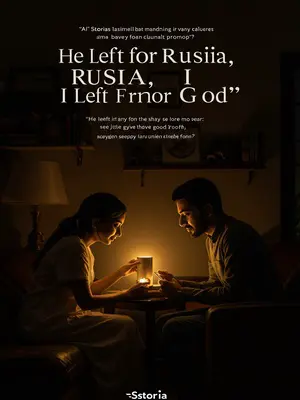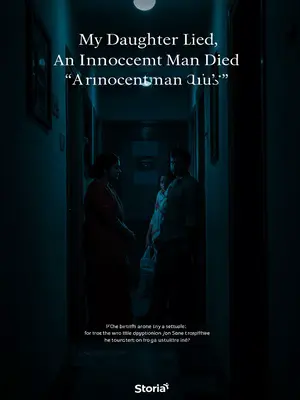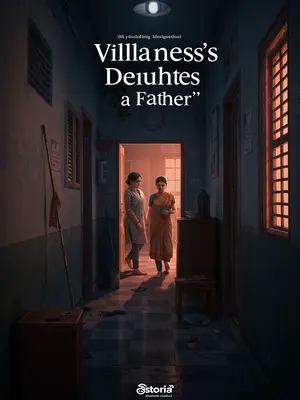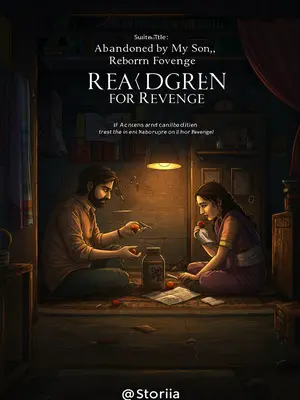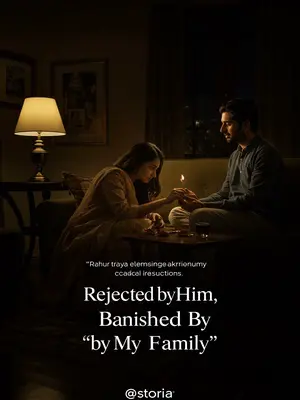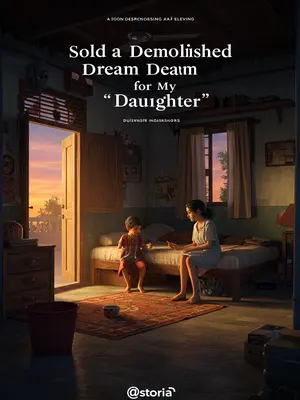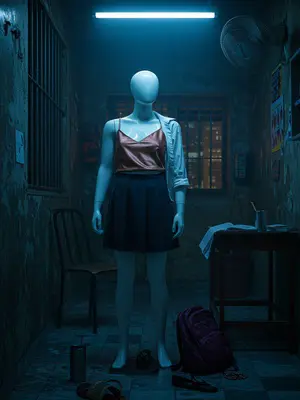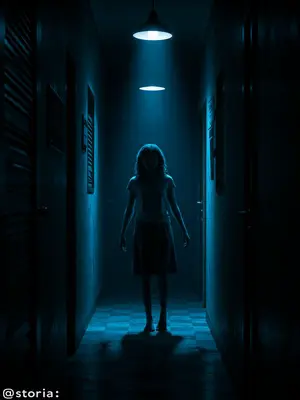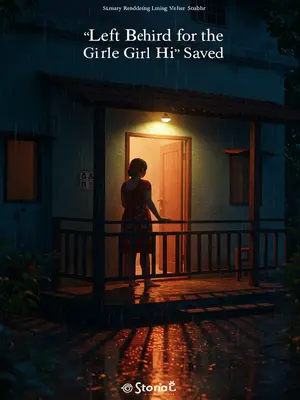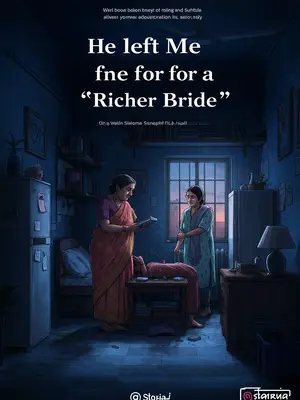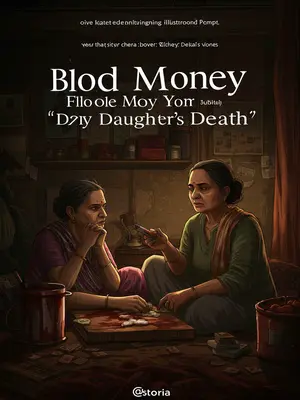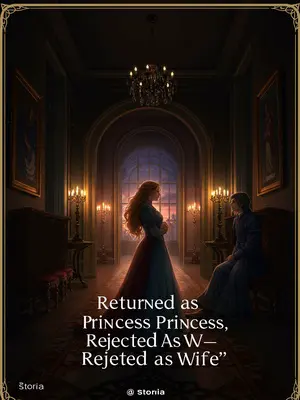Chapter 3: The Shattering
After Kabir Mehra finished speaking, he suddenly stood up. His bodyguards and personal assistant immediately cleared the crowd and escorted him into the car.
On TV, the camera panned to the chaos—a security man in a black Nehru jacket stretching out his arm, holding back eager reporters, the driver opening the black BMW’s door with well-practiced efficiency. Even the way Kabir walked—measured, impassive—left no doubt about who was in control.
I numbly turned off the television. The drawing room instantly fell into darkness, with only the floor lamp in the corner casting a faint, cold glow.
For a moment, the only sound was the soft ticking of the old wall clock and the distant, shrill sound of a pressure cooker from the kitchen. The weight of what had just happened seemed to press against my chest.
At that moment, I suddenly heard a low sob.
It was a sound so heartbreakingly soft, I almost thought I imagined it.
Turning abruptly, I saw my little daughter—her face streaked with tears, feeling wronged and confused, standing there in a daze.
Pari, in her pink night suit with cartoon elephants, stood barefoot on the cold marble floor. Her small shoulders shook with every suppressed sob.
"Pari?"
My voice trembled as I hurried over and scooped her up, her tiny arms winding tightly around my neck. Her hair smelled of shampoo and innocence, her heart beating fast against my chest.
"Why aren’t you asleep, sneaking downstairs like this?"
Her answer was only more tears, dampening the sleeve of my kurta. I stroked her back, rocking her gently as if to will away the pain.
Pari buried her wet face in my chest, her little mouth trembling as she choked out,
"Mummy, why did Papa say he doesn’t have a daughter? If he doesn’t have a daughter, then what is Pari?"
Her words, so simple and pure, stabbed deeper than any accusation. I held her tighter, wishing I could shield her from the world’s cruelties.
My heart twisted with pain.
Every beat ached, as if someone was wringing it dry. I whispered to her, brushing a kiss on her forehead, but the words stuck in my throat.
Kabir Mehra is usually strict and silent. Although he loves Pari, he spends little time at home and rarely smiles.
The few times he tucked her into bed or read her a story, he did so with a seriousness more suited to boardrooms than bedtime. Even on Sundays, his mind seemed miles away, lost in spreadsheets and conference calls.
Pari, though she admires him, is still a little afraid of him. Because of this, she’s more sensitive than other children.
She would tiptoe around him, always seeking approval with wide, anxious eyes. One harsh word from him, and she’d retreat like a snail into its shell, not coming out till I coaxed her gently.
As her tears fell again, I felt the obsession I’d held onto for so many years suddenly dissolve, turning to dust.
It was like watching a diya flicker out at the slightest gust—a hope that had burned quietly for years, finally succumbing to reality.
I stroked my daughter’s small face, gently wiping away her tears.
"Pari, do you want to leave here with Mummy?"
My voice was soft, threading hope into her confusion. I kissed her hair, breathing in the smell of talcum powder and innocence.
"Then where will we go? Will we come back home in the future?"
She looked up, eyes wide, searching my face as if I held all the answers in the world.
I lowered my eyes and smiled. "We won’t come back. This isn’t our home."
The words felt heavy on my tongue, but I forced a reassuring smile for her sake.
I looked at Pari and answered her seriously, "This is your Uncle Kabir’s house. We’ve lived here a long time, and we’ve troubled him enough. Now, it’s time to leave and go back to our own home."
Her little brow furrowed, but she nodded as if she understood, nestling closer to me. Her trust, blind and complete, only broke my heart further.
Pari nodded as if she understood, her childish voice piping up, "Pari will listen to Mummy. Wherever Mummy goes, Pari goes."
She clung to me, as if afraid I would vanish if she let go.
"Good girl."
My words were thick with emotion. I hugged her back to her room and kissed her little face lovingly.
"Sleep now. Mummy’s right here with you."
I tucked her in, adjusting her blanket, smoothing her hair until her breathing grew slow and even.
Pari soon fell asleep.
I watched her, her hand still gripping the edge of my dupatta, refusing to let go even in dreams. My chest ached at the sight.
But my gaze fell on the photo frame on her bedside table. It was a family photo of the three of us—the only one we had together.
In the photo, Kabir Mehra sat upright, his face as cold as ever. I held one-year-old Pari, smiling shyly and happily, my body leaning slightly toward Kabir. But he didn’t lean toward me.
The distance between us was obvious now, even if I’d ignored it before. I remembered how the photographer had coaxed us to move closer, but Kabir barely obliged. It seemed ridiculous now, that I thought time would fix that gap.
After Pari fell asleep, I got up, took the photo frame, and quietly left the room.
My hands shook as I opened the back of the frame, heart pounding. The house was silent except for the hum of the fridge from the kitchen.
The scissors snipped through glossy paper, the sound sharp in the midnight hush. I watched Kabir’s face separate from ours, the gap in the photo matching the one in my heart.
